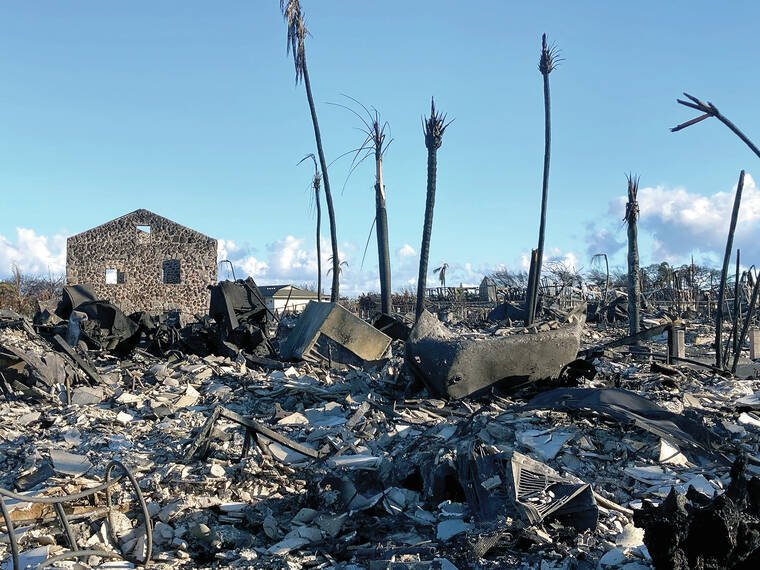Answering the call: 12 Hawaii Island police officers assist Maui in its time of need
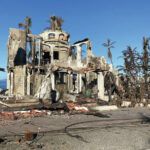
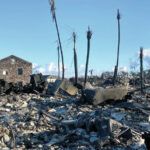
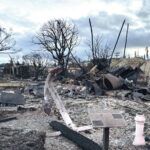
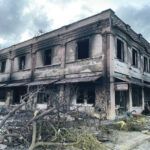
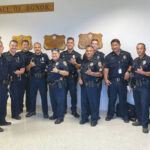
Three days after fire ripped through Lahaina leaving a path of destruction, 12 officers from the Hawaii Police Department answered the call from Chief Benjamin Moszkowicz to assist their family in blue, however needed.
“The Hawaii Police Department is proud to be able to send officers to help out on Maui. In response to a request from Maui Chief John Pelletier, we were able to send our first team of twelve personnel on Friday morning, August 11.” said Moszkowicz.
Kona Community Policing Officer Dwayne Sluss was one of the chosen to spend the first week in ground zero along with fellow west side officers Bradley Llanes, Aaron Yamanaka, Elijah Won, Patrick Robinson and Keith Nacis, along with six others from East Hawaii.
“By day three of the fire we landed in Maui by about 8:30 in the morning and by 9 we were having a meeting with the chief over there,” said Sluss. “It was still new and it was still fresh. It was a controlled chaos.”
Sluss said the Big Island was the only other county to send officer assistance.
“We were supposed to do the night shift, 6 p.m. to 6 a.m., but in reality we usually worked until about 10:00. We were doing 14- to 18-hour shifts. If they needed us to stay there, we stayed,” he said.
He said when they first arrived, they were tasked with securing the area where a minimal number of National Guard were sifting through the wreckage and recovering bodies that were visible.
“We locked down about a dozen roads people were trying to get into. Some of us were right on the edge of the burn zone with all of the ash and the smell,” he recalled.
Sluss said he was taken aback by some of the randomness of destruction.
“We blocked off a road in what was left of an industrial park. You could look at it from the front and there were two or three warehouses that weren’t affected, but behind that was total devastation,” he said. “There was no rhyme or reason as to why, in the midst of the destruction, a few buildings remained relatively unscathed, such as the Catholic Church. In parking lots, you would see four cars completely burnt out and literally next to them, one or two that are perfectly fine, then more burnt out cars. Fleetwood’s tripped me out. Out of all the businesses in town that I saw, Fleetwood’s sign was the only one I saw left. One side of the sign was pristine, on the other side it was a little bubbled, but the restaurant was gone.”
He said after the first four nights other agencies started showing up including additional National Guardsmen, U.S. Marshals, the Federal Bureau of Investigation, Homeland Security, the Transportation Security Administration, the Federal Emergency Management Agency and search and recovery crews from all over.
He said in his duty there, he mostly was dealing with people who were trying to get back and evaluate their homes.
“They were homeowners, but they weren’t adhering to the rules,” he recounted. “I saw it as another form of grieving. You don’t believe it until you see it, but in the same respect, the area is still a huge biohazard area and bodies are still being found. Now it’s getting harder because they are just finding pieces of bone amidst the ash.”
He said that there is no one thing in particular that he could say stands out from his experience, but a lot of “holy s—-t moments.
“I looked at a subdivision and thought where’s the burnt wood, where’s the charred timbers? Because all you could see is steel or concrete was there. If it was anything else, it was just ash. No wiring, no copper piping no stoves or refrigerators. If it was an older home with the iron tubs or sinks, you saw that but nothing else. That’s how hot the fire burned,” he said.
Sluss said he mentally prepared for what he knew he was going to see.
“You are already putting yourself in the worst case scenario and already in that mindset, so it wasn’t shocking to me, more of a complete sense of loss. For those that survived, they lost everything, their house, photographs, computers, all their information and for many, family members,” he said. “For me that was the wow factor. Just the amount of loss. When we finally got down to Front Street, you saw all of the history lost. It was all ash.”
Moszkowicz said the department will continue to rotate 12 volunteer officers to Maui for one week at a time.
“The department also sent over 20 officers to help with President Biden’s visit earlier this week. That group has since returned,” said the chief. “As members of the Lahaina community, Maui Police Department officers and personnel have lost homes and loved ones, yet many continue to work long hours with little rest to serve and protect their community. We are committed to helping them until our help is no longer needed.”


